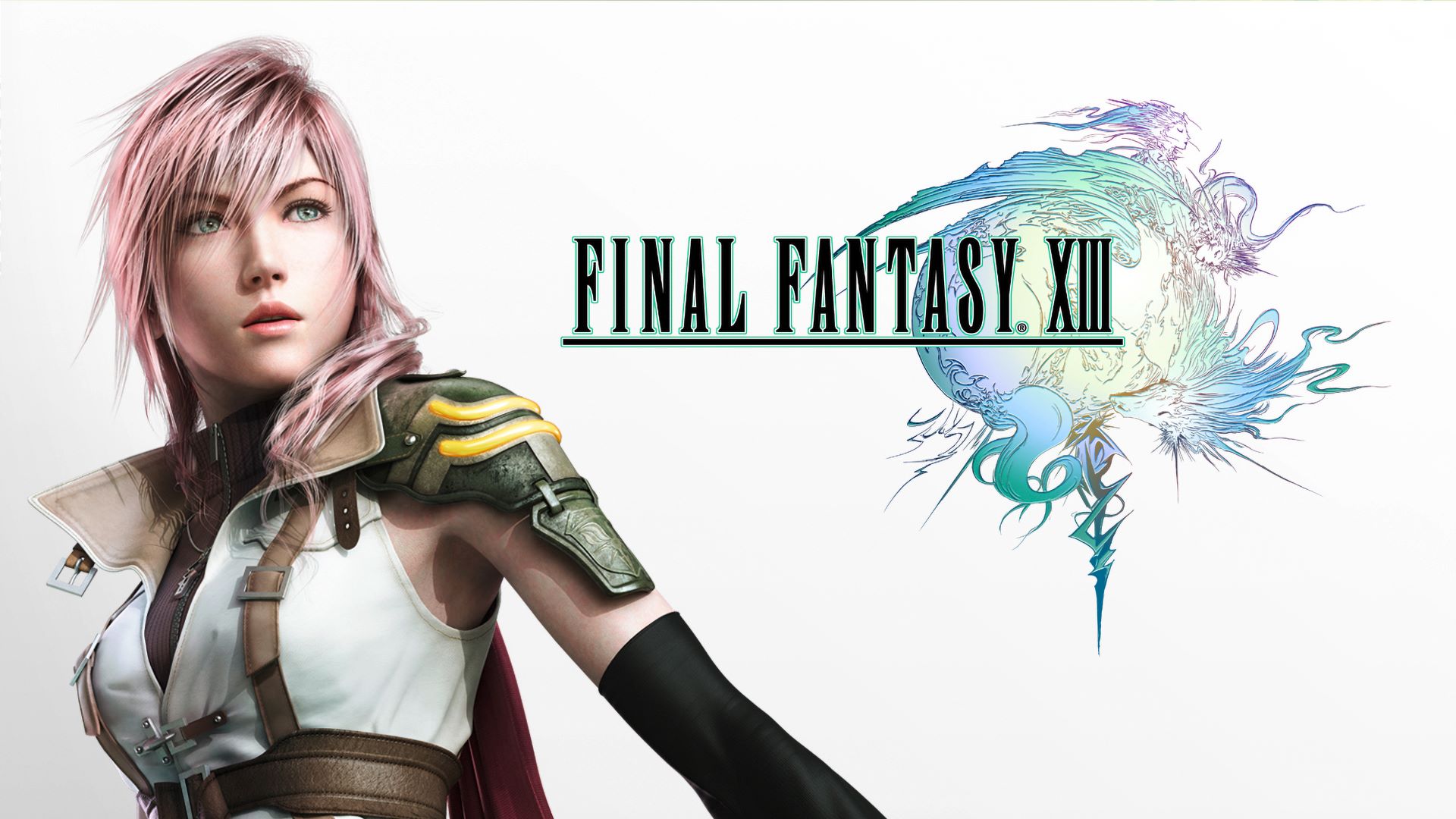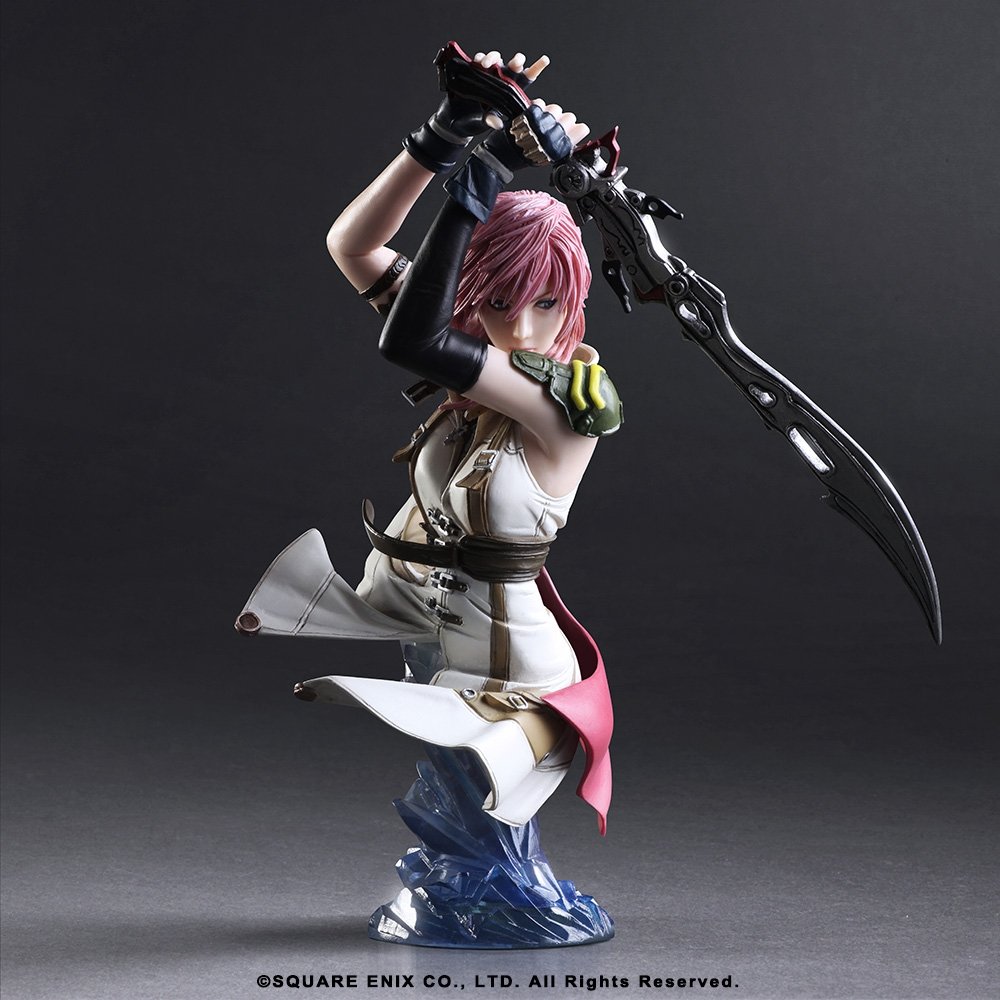

For years, the Final Fantasy series has stood as a seemingly timeless pillar of Japanese role-playing games. With fantastic characters, intricate stories and complex battle systems, Final Fantasy is one of the most recognizable names in the videogame world -- and for good reason. Surprisingly, Final Fantasy XIII abandons a number of well-loved series traditions in favor of a more straight-forward approach. While fans might be concerned by this, the two most important aspects of the series -- the battle system and the narrative -- remain just as strong as they always have.
In Final Fantasy XIII, players take control of six different characters with the sharp-eyed Lightning taking the "lead role." Although the game does tend to stress Lightning as the primary heroine, Final Fantasy XIII is reminiscent of Final Fantasy VI in that you control all the characters at different times and you jump between the groups frequently. This multi-story approach, as well as a clever use of flashbacks, makes Final Fantasy XIII's story quite enjoyable, at least in terms of its structure.
Final Fantasy XIII can tiptoe (or "stumble," depending on the scene) into the melodramatic, but fans of the series shouldn't be too surprised. What was more intriguing to me, beyond the standard growth of the characters, was the dynamic established between the two worlds of Final Fantasy XIII -- Cocoon and Pulse -- as well as the relationship between humans and their fal'Cie counterparts. Like various religions of the world, the mythology of Final Fantasy XIII incorporates god-like beings (the fal'Cie) that protect humanity. These themes are extremely important t the plot of Final Fantasy XIII and I very much enjoyed them.

The game also benefits from its cast, and all the members are voiced by some very talented people. Even the actors providing work for the side characters and villains do a tremendous job.
Of course, a role-playing game would be nothing without a solid battle system, and fortunately Final Fantasy XIII delivers. What starts out as an extremely simple, menu-driven system slowly becomes one of the most complex, challenging systems I've ever experienced in a Final Fantasy title. At the system's root is the classic ATB (Active Time Battle) principle. When standing in a neutral position, a gauge fills above your list of commands. This gauge is segmented, so as it fills, more segments are available for use. Every action a character can take requires the expenditure of a certain number of segments from the gauge. This attack queue system is much preferable to selecting one command at a time, as it gives players the ability to build combos and multitask when the going gets rough.


Although you only control one character at a time, the actions of all three of your party members are dictated by their roles. There are six roles in Final Fantasy XIII and all six characters have access to each role by the end of the game (though they are gifted in three of the six). Unlike past Final Fantasy games that use a job system, Final Fantasy XIII's roles are all invaluable and must be used effectively to survive. These roles ultimately affect how you play the game, as someone controlling a Sentinel will be constantly provoking and distracting enemies while a Medic, alternatively, will be healing. These roles keep battles fresh and fun, which is vital in a good
But before entering battle, players must set up a deck of Paradigms, which is the fancy way of referring to a grouping of roles. The Aggression Paradigm, for example, refers to a party composed of two Commandos and one Ravager. The Combat Clinic Paradigm stands for two Medics and one Sentinel.
By preparing several Paradigms outside of battle, players can switch roles on the fly during combat in order to best meet the situation on the field. This might sound like a simple gimmick, but it's absolutely not. Switching Paradigms is critical to surviving in Final Fantasy XIII and it adds an element of tension to what could have been a mundane system.
This tension is heightened by the chain gauge, which is a separate meter above every enemy's head. As you attack an enemy, this gauge rises. Max it out and your opponent will enter a staggered state, meaning it's much more susceptible to damage. This is also critical to coming out on top in Final Fantasy XIII, as some difficult enemies can only be defeated effectively when staggered.
Every battle is rated. Each battle has a target time and if you manage to best your opponents before that time, your score will improve. This score not only affects the sort of spoils you earn from battle but it also helps build your technical points, which allow your characters to perform powerful moves like summons and more. These ratings give players real motivation to perform well during battle and avoid "going through the motions," which is a common problem in RPGs
When you consider the constant tension, fast pace and high reward of the Final Fantasy XIII battle system, it's easy to see why this game is fun to play. It's also constantly satisfying, as players can sink collectively earned experience points into the Crystarium system, which is like a very pretty version of the Sphere Grid from Final Fantasy X. Or, for those unfamiliar with the series, it's basically the way you choose your skills and level up your character. I got a huge sense of satisfaction from manually leveling up each character's roles in this manner.

Final Fantasy XIII, however, is not without its fair share of problems -- problems which keep it from being as great as its legendary predecessors. The well-known mention of "linearity" when it comes to Final Fantasy XIII might be old hat by now, but it is a notable issue. The first 25 to 30 hours of the game are so linear, they might as well be on rails. Dungeons are nothing more than a series of pathways through various environments, with occasional detours hiding a floating treasure chest. This linearity wasn't particularly bothersome for me because I was enjoying the story and battles along the way, but this will be a huge blow to Final Fantasy veterans.
It's important to note that the game does open up quite a bit in Chapter 11 (out of 13), giving players the freedom to explore several huge environments and undertake tons of side missions. For some, this will be a classic case of "too little, too late." Exacerbating this issue is the fact that players are unable to select their party leader and party members before Chapter 10.

Final Fantasy XIII is a great JRPG and sports a fast-paced, challenging, satisfying battle system. The game also boasts an intricate story, a likeable cast of characters and the best visuals in the series yet (of course).
But hardcore Final Fantasy fans might be disappointed by the game's abandonment of franchise traditions like open worlds, town exploration and complex mini-games. The game is still worth buying, but it doesn't quite feel as complete as its well-loved predecessors.
